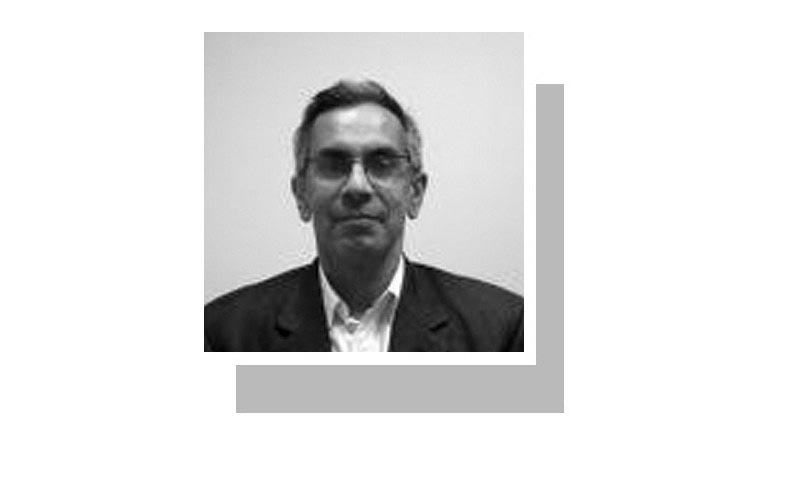
WITH the term of the most recent democratically elected government coming to an end a few weeks ago, we have also come to the end of the cycle since 1977, where a decade of civilian government has been followed by a decade of military dictatorship.
After Pakistan’s most free and fair elections ever in 1970, the people of Pakistan were made victims of a cruel military dictatorship from 1977 onwards which came to an accidental end in 1988. Gen Ziaul Haq was not pushed out by the people of Pakistan, as was his military predecessor or subsequent successor; instead, his plane fell from the sky.
After Zia’s unexpected departure, a deformed and mangled form of civilian electioneering emerged for a decade, undermining any of the small gains made in the name of an incipient democracy in the early 1970s. Throughout the Lost Decade of the 1990s, the military ruled, but didn’t govern directly, since it never had the need to. When you hold as much power as the military did then, holding office becomes irrelevant.
An inexperienced political dispensation, much constrained and hampered by the military’s institutions and no match for their machinations, couldn’t help but give democracy a bad name.
The next non-martial law military dictatorship in 1999, which was welcomed by large groups of citizens and which ended a decade of inept civilian rule, itself came to an end, as internal contradictions, always present in authoritarian, unelected, and in our case repeated military, rule, manifested themselves.
Many elected and civilian groups have continued to raise their voice in a public space which is heavily manipulated against them.
For the second time in their history, the people of Pakistan forcefully removed a military dictator. However, the significant difference between 1968 and 2008 was that this time the people and their representatives were in a position to form government and rule unlike in 1968, when the collapsing empire of a military general was salvaged by one of his own.
Already one can see that 2008 was not 1988, and within those two decades, much had changed in material conditions in Pakistan giving rise since 2008 to perhaps the most democratic era in Pakistan’s not-so-impressive, short democratic history. Even when a military dictator held power, which by 2008 had weakened considerably through his hubris, democratic forces were able to oust him following a vibrant election process.
These gains were consolidated again in 2013, when the first real democratic transition from one civilian government to another took place again, perhaps for the only time without interference from any clandestine agency or institution. If 2008 was the rebirth of democracy in Pakistan, 2013 was its possible consolidation. Civilian elected forces were in a position to dominate and set the tone for a potential democratic future.
Has this first and only decade of democratisation come to its end? Any reader of the signs of today would answer the question strongly in the affirmative as many have and continue to do.
Following Nawaz Sharif’s ouster and disqualification, with the pre-poll engineering of assemblies and ‘electables’, the rise of the institutional alliance and harmonious pact, and the well-articulated attempts (most successful) of strangulating comment (let alone dissent) of substantive political issues in Pakistan’s once free and vibrant media, one is not surprised at the broad consensus that is emerging.
In terms of a recent Friday Times’ editorial, it is that the forthcoming election next month will be a manipulated “Selection 2018” where “a massive and unprecedented pre-election rigging exercise” is under way. Or perhaps not even that, with the din of chatter suggesting an extended tenure for the caretaker government.
New terms, such as ‘judicial martial law’ and ‘judicial imperialism’, have now become part of Pakistan’s public lexicon, just as did ‘political engineering’ in the 1990s. For many Pakistanis, the past is set to become its future, yet again.
Yet 2018 is not 1988 which followed a decade-long dark and vicious martial law, nor is it 1999 when an adventurous and ambitious general walked over weak democratic institutions and spaces. After a decade of democratisation, despite obvious setbacks, Pakistan’s present is different from its past. For where there is power, which is often perceived to be unjust, there will always be resistance.
This last decade has seen Pakistan’s most vibrant if not only substantive democratic process. There is no denying the fact that much hope and expectation from the 2008 democratic revolution ousting a sitting former general-president has been lost as non-democratic institutions have clawed their way to reclaiming their once-assured dominance, now making alliances with other unelected institutions.
Yet, despite this reversal, many elected and civilian groups, not least the ousted former prime minister himself and groups comprising representatives of the many disappeared Pakistani citizens have continued to raise their voice in a public space which is heavily managed and manipulated against them.
Not only that, after 10 years of civilian representation, there have been greater expectations from a recurring process which has taken deep root in the public and amongst civilian politicians themselves. Even those who have waited for some umpire’s finger to show them the way require that the electorate finds them electable.
And here is where the crux lies. While individuals and groups can be herded from one party to another, the continued support for Nawaz Sharif amongst the public, and not just for a perceived unjust dismissal, backed up by his party’s developmental programme particularly at the local and provincial level, continues to keep him in the game.
Praetorian democracy has failed in Pakistan, when even a general as formidable as a Zia had to dismiss a Junejo, or a Musharraf was forced to replace a Jamali. The perceived hegemony of non-democratic institutions will constantly be challenged by whatever parliament has to offer, no matter how apparently compliant or otherwise it is.
The writer is a Karachi-based political economist.
Published in Dawn, June 25th, 2018













































